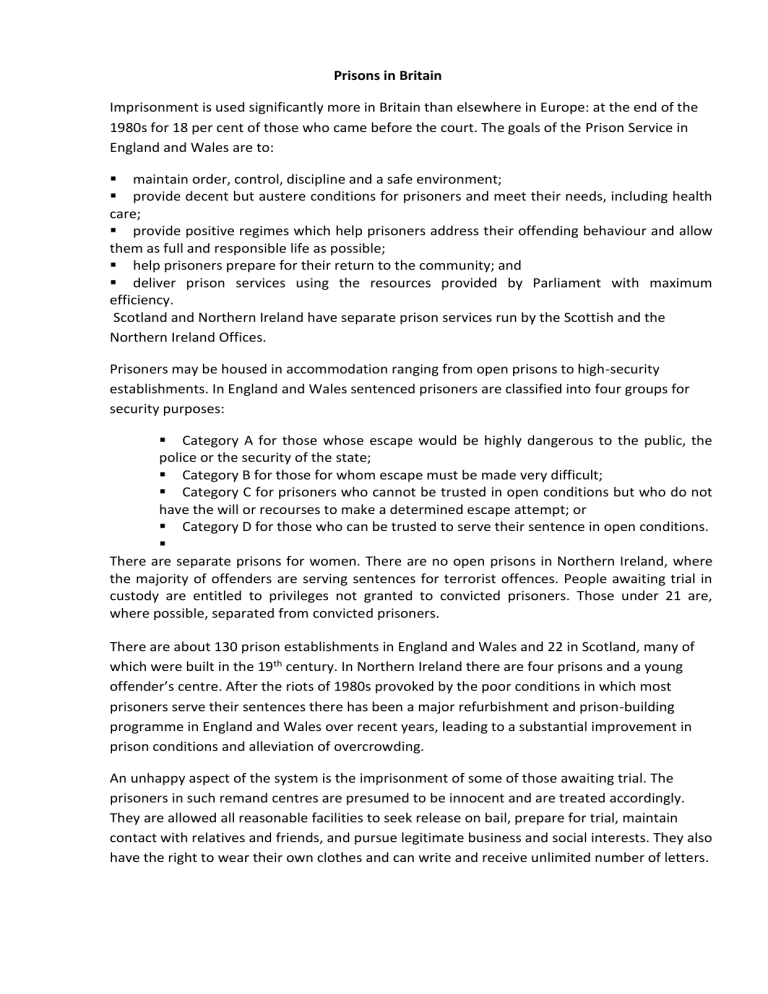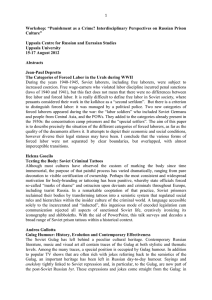
Prisons in Britain Imprisonment is used significantly more in Britain than elsewhere in Europe: at the end of the 1980s for 18 per cent of those who came before the court. The goals of the Prison Service in England and Wales are to: maintain order, control, discipline and a safe environment; provide decent but austere conditions for prisoners and meet their needs, including health care; provide positive regimes which help prisoners address their offending behaviour and allow them as full and responsible life as possible; help prisoners prepare for their return to the community; and deliver prison services using the resources provided by Parliament with maximum efficiency. Scotland and Northern Ireland have separate prison services run by the Scottish and the Northern Ireland Offices. Prisoners may be housed in accommodation ranging from open prisons to high-security establishments. In England and Wales sentenced prisoners are classified into four groups for security purposes: Category A for those whose escape would be highly dangerous to the public, the police or the security of the state; Category B for those for whom escape must be made very difficult; Category C for prisoners who cannot be trusted in open conditions but who do not have the will or recourses to make a determined escape attempt; or Category D for those who can be trusted to serve their sentence in open conditions. There are separate prisons for women. There are no open prisons in Northern Ireland, where the majority of offenders are serving sentences for terrorist offences. People awaiting trial in custody are entitled to privileges not granted to convicted prisoners. Those under 21 are, where possible, separated from convicted prisoners. There are about 130 prison establishments in England and Wales and 22 in Scotland, many of which were built in the 19th century. In Northern Ireland there are four prisons and a young offender’s centre. After the riots of 1980s provoked by the poor conditions in which most prisoners serve their sentences there has been a major refurbishment and prison-building programme in England and Wales over recent years, leading to a substantial improvement in prison conditions and alleviation of overcrowding. An unhappy aspect of the system is the imprisonment of some of those awaiting trial. The prisoners in such remand centres are presumed to be innocent and are treated accordingly. They are allowed all reasonable facilities to seek release on bail, prepare for trial, maintain contact with relatives and friends, and pursue legitimate business and social interests. They also have the right to wear their own clothes and can write and receive unlimited number of letters.











